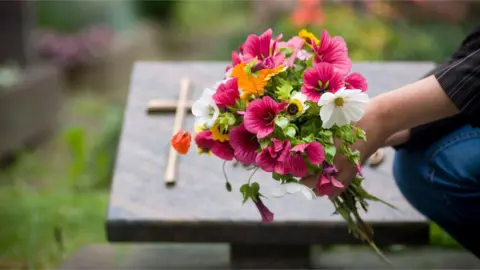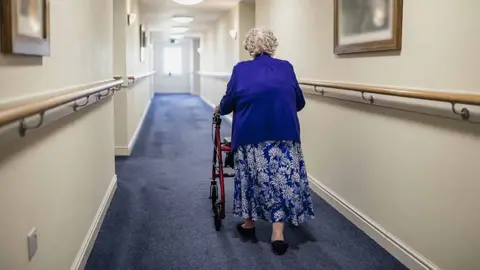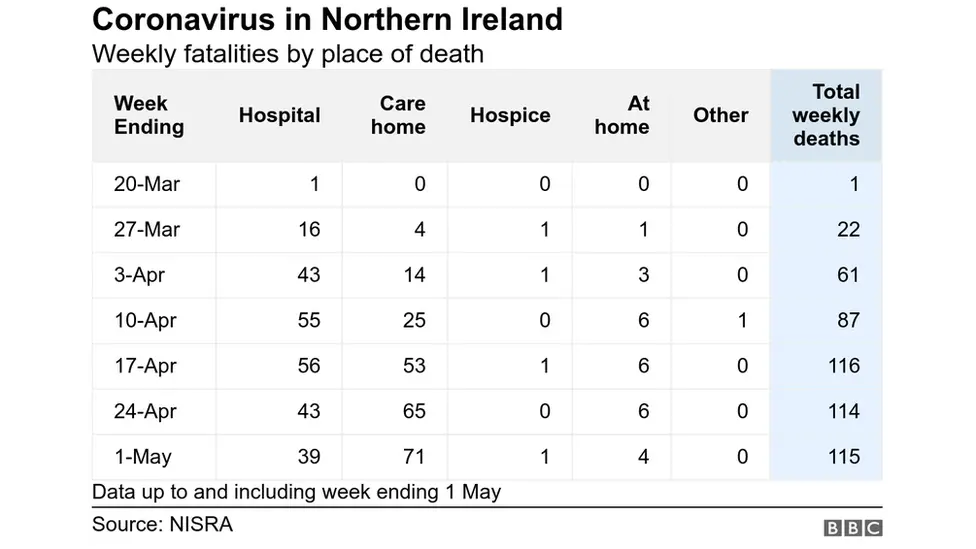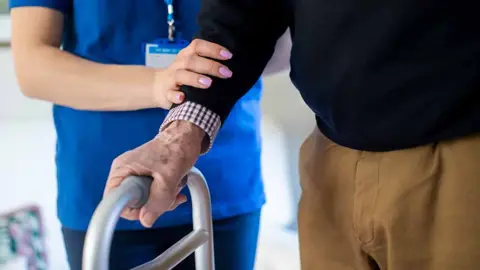Coronavirus crisis puts care homes back in the spotlight
 Getty Images
Getty ImagesThis week, I paid my last respects to a friend's mum.
While it wasn't Covid-19 that took her in the end, the pandemic did rob her of a traditional Irish wake.
I spoke to my friend of more than 40 years through a partially-opened window.
I desperately wanted to hug her, but the pandemic robbed us of that moment.
While the wake was different, the send-off from her home was beautiful and graceful.
There was music, family, friends and memories were recalled and made. Despite the social distancing which was respected, it brought people together. The sun even shone.
In the end the family - not the virus - won the funeral battle.
 Getty Images
Getty ImagesThe same determination shown by my friend's family could be applied to how we deal with older people in care and those who look after them.
For the second week running, more people died in care homes than in a hospital setting. That is grim.
Three years ago, two reports threatened to shake up the system.
The Power to the People report published by Des Kelly and John Kennedy described Northern Ireland's social care system as "collapsing in slow motion". It said the workforce was being "exploited" and called for change.

The Department of Health published sixteen proposals to "reboot adult social care".
However, as there was no executive in place there was no reboot of social care.
Three years on, and a struggling social care system has been laid bare again.
There are many questions, including, who is ultimately responsible for the care of older people in homes?

- A SIMPLE GUIDE: How do I protect myself?
- AVOIDING CONTACT: The rules on self-isolation and exercise
- LOOK-UP TOOL: Check cases in your area
- MAPS AND CHARTS: Visual guide to the outbreak
- STRESS: How to look after your mental health

As demonstrated over the past couple of weeks, there aren't enough care workers for older people; dentists are now among staff who have volunteered to work in the sector to help fill the rota gaps.
While their commitment is honourable, it's hardly a way to staff social care.
It has been suggested that care homes were not given the same attention or priority as was awarded to hospitals when planning for the pandemic.
More than 100 care homes have confirmed they are affected by Covid-19. That number is sure to rise.
Families, staff and health unions have been raising their concerns, and there there is a constant sense of the buck being passed.
While Northern Ireland's care homes are mostly privately owned, the health trusts continue to place a vast majority of people in those homes and remain responsible for their care.
But when journalists are looking for facts around Covid deaths, cases, PPE and staffing we are often passed from pillar to post.
 Getty Images
Getty ImagesThe Department of Health announced a £6.5m funding package for care homes and in a statement they are keeping the PPE "flowing".
It is my understanding that few homes, if any, have felt the impact of this money.
Like other health ministers before him, Robin Swann has recognised the problem.
On the record, he's said there must be changes to how care homes are run post pandemic.
Health unions have been raising the issue for decades, families have told their stories, appeals for help have been made and still the crisis goes on.
It is not just a Northern Ireland problem - social care is a global issue brought to the fore, once again, by the pandemic.
Once again a light has been turned on, but just as quickly can be turned off.
It's Robin Swann's hand that's currently on the control panel - he made a difference for nurses - though they had to strike for it.
Let's see what he can do now for social care.
